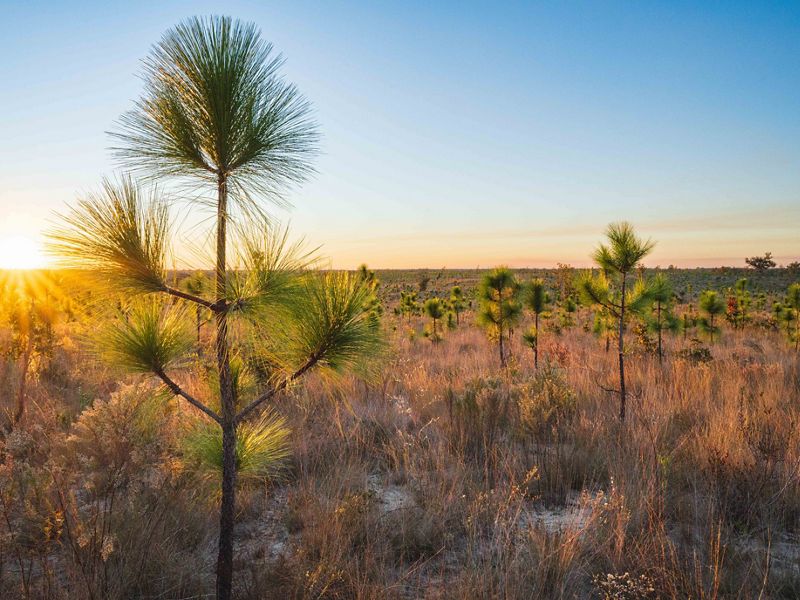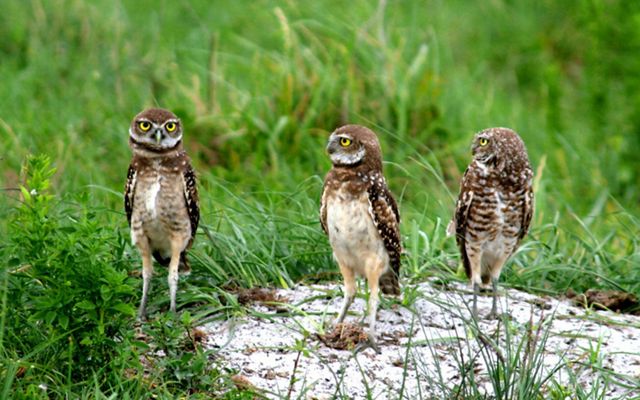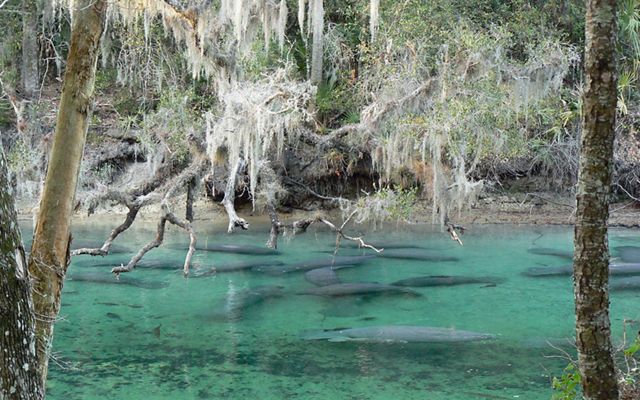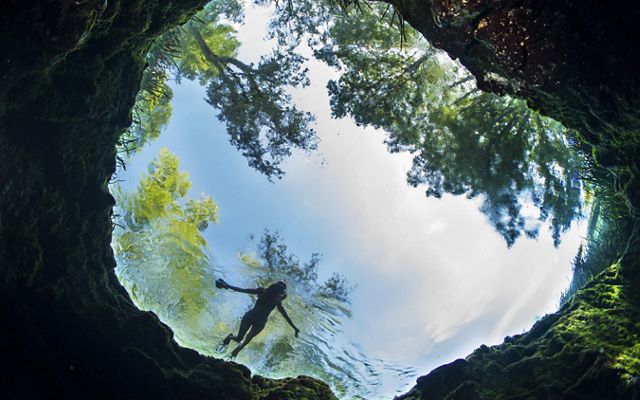
Longleaf pine Evening in the middle of restored longleaf of the Torreya State Park Sweetwater Tract 2013 © Andrew Kornylak
Florida’s state parks are a treasured natural asset for citizens across the peninsula, not to mention the rare and threatened animals and plants that call them home.
The Florida Department of Environmental Protection revealed plans to build 350-room hotels, golf courses, pickle ball courts and other development on the environmentally sensitive lands at 26 Florida state parks as part of the “Great Outdoors Initiative.”
The Nature Conservancy strongly opposes these incompatible amenities, as they would destroy decades of conservation effort. Read a statement from executive director Greg Knecht.
BIG WIN: State Park Preservation Act (SB 80)
We are celebrating the passage of Sen. Gayle Harrell’s bill, the State Parks Preservation Act (SB80), that increases protections for our protects our public lands. The Nature Conservancy supported this bill throughout the state legislative session.




Our state parks are home to several plant and animal species that occur nowhere else in the world.
Why Science Favors Alternatives to Development
These protected lands conserve iconic and imperiled wildlife species including the Florida panther, red-cockaded woodpecker, piping plover, Florida manatee and beach mice. Natural areas, like our state parks, serve as living laboratories for scientific research—research that helps us to tackle complex challenges related to biodiversity loss, climate change, ecosystem collapse and human wellbeing. They offer insights into ecological processes, species interactions and evolutionary biology. Protecting these areas ensures that scientists and the community can continue to understand and connect with the natural world.
What are the potential impacts of development within our state parks?
Building high-intensity amenities in state parks is a misguided investment and destroys the progress and prestige our state parks have rightfully earned. Whether its pickleball courts or parking lots, all of these amenities will require more concrete, thus causing more water runoff, more erosion and more acres taken out of conservation.
Lodges do not speak to the quiet, immersive quality of current state park overnight experiences. Increased lodging capacity will also increase noise and impact infrastructure, water and waste systems in some of Florida’s most fragile habitats.
Pickleball courts impact current land that helps buffer coastal parks from sea level rise and storm impacts. Impervious surfaces like concrete don’t allow water to naturally flow through the soil, rather, encouraging run off into nearby waters and impacting water quality.
Disc Golf will impact conserved environments with increased foot traffic and impacts to trees in course paths. Increased foot traffic can cause soil erosion and increased human contact with elusive wildlife species like black bear and bobcat.
Golf courses on state parks are unneeded and uncalled for, impacting water quality, wildlife and the natural resilience that conserved lands provide.
Golf courses use fertilizers, pesticides and other chemicals to maintain their landscapes. These harmful chemicals impact water quality, harm pollinators and other insects and forever taint our natural areas.
Golf courses generate litter through golf balls, tees and other plastic trash. That trash inevitably makes its way into our oceans.
Visitors venture to state parks to escape the hustle and bustle, not for a buzzing resort experience. Placing hotels, pickleball courts and golf courses on conservation lands is not what Floridians voted for when they overwhelmingly approved our state’s land buying programs.
Quote: Greg Knecht
Our state parks are an investment in our future. More than 28 million people visit Florida’s state parks each year creating $3.8 billion in economic impact. That’s why we must continue to protect them for their primary purpose: to conserve ecologically essential lands.




It Pays to Protect Our Parks
Florida has an abundance of golf courses, hotels and pickleball courts. What we do not have is a surplus of undeveloped conserved natural lands.
In a state to which 900 people move every day, let’s continue to work together to protect Florida’s natural habitats and honor the incredible legacy of Florida state parks with responsible, forward-looking planning. Visitors venture to our natural areas to connect with “the Real Florida,” and to experience our globally unique landscapes. Florida state parks are an investment in our future, an investment we must protect by responsibly balancing natural resource protection and recreation.
Florida’s park system is the only park system in the nation to win four gold medals and it is this forward-looking approach to land management and abundant low-impact recreational opportunities that have earned this prestige.
TNC in Florida has actively assisted the state to acquire state park lands for their conservation values, including three of the state parks covered in the Great Outdoors Initiative: Camp Helen State, Topsail Hill Preserve and Jonathan Dickinson. As a long-term partner in protecting lands for the future of Florida, TNC knows the proposed incompatible recreational uses are inconsistent with the goals of Florida State Parks and the Florida Department of Environmental Protection.
Proposed amenities go against a state parks’ primary purpose: to conserve our ecological, cultural and historical wonders. Dedicated state park staff have done a phenomenal job managing state park lands to benefit wildlife and enhance natural resource values, and we are proud to partner with several Florida state parks on ongoing habitat restoration efforts.
Use Your Voice
Our cherished state parks are facing a threat from a state initiative to further development. We must act swiftly and decisively to protect them.
- Attend public meetings to voice your concerns, sign petitions to show your support and spread the word to your friends, family and social networks.
- Encourage everyone you know to join this vital cause.
- Reach out to your state representatives, and share your personal stories and treasured memories of our parks to underscore their importance.
- Connect with us on on X, Instagram and Facebook for real-time updates and to stay engaged with our efforts.
Together, we can safeguard the natural beauty and ecological integrity of our state parks. Let’s make our voices heard and protect the places we love!